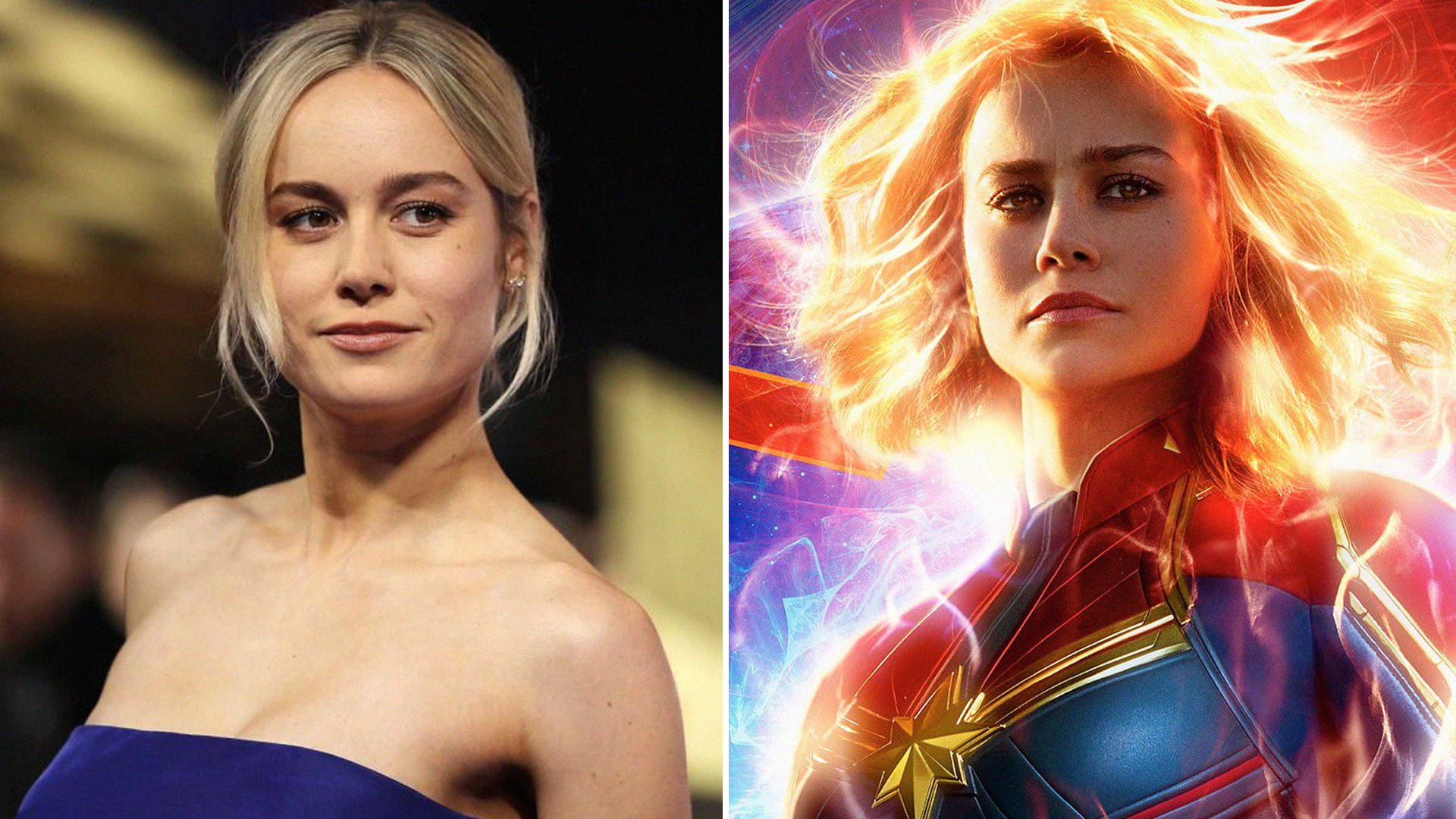‘Captain Marvel’ Will Be a Success Because of Brie Larson

Credit to Author: Noel Ransome| Date: Wed, 06 Mar 2019 15:59:07 +0000
Do you remember when you realized that 2019’s assumed-to-be blockbuster Captain Marvel wouldn’t be a success? Maybe it was the trailer of unsmiling Brie Larson, or the audacity of Larson expressing thoughts on inclusivity or whatever. Or maybe, just maybe, it was your bat signal set to the frequency of “man hater” that did it in.
Either way, several people knew that Captain Marvel would fail—many angry dudes, in fact. They knew before the investors, before the critics and even before the big shots at the very profitable company known as Disney.
Of course, despite the efforts of the worst people on the internet, it sure looks like Marvel’s first female-led movie is going to be a massive smash.
Currently, the spacefaring film starring Brie Larson, Samuel L. Jackson, Lashana Lynch, and Jude Law is projected for an opening weekend as high as $150 million as of last week, making it the third-best superhero flick for advanced ticket sales—shy of Infinity War and Black Panther. Not to be outdone, Chinese estimates from March 4 project the MCU newbie as earning $85-95 million during opening weekend—the fourth biggest Marvel hit for the region ever. And South Korea topped 240,000 ticket sales, exceeding that of any other solo MCU film in its history.
The gloom and backlash that followed Marvel’s first female lead, half-human, half alien champion, could have easily overwhelmed its momentum, similar to the much-critiqued, $70 million losing Ghostbusters 2016. But the opposite is true—not because they’re widely different from one another (the same anti-feminist sentiment) but because Captain Marvel hugged to its message tight, even when it was foreseen to be harmful.
For the sake of context, the backlash before smilegate began last year when Larson gave an interview to Marie Claire expressing her thoughts about the lack of diversity among film critics. In it, she expressed frustration about the racial makeups of her interviews. “It appeared to be overwhelmingly white male,” she told disabled interviewer, Keah Brown. “Moving forward, I decided to make sure my press days were more inclusive.” Fast forward five months later during a Crystal + Lucy acceptance speech, when Larson added that she didn’t hate white dudes, but that she preferred that target audiences have greater opportunities to critique film.
“I do not need a 40-year-old white dude to tell me what didn’t work for him about in A Wrinkle in Time. It wasn’t made for him. I want to know what it meant to women of colour, to biracial women, to teen women of colour, to teens that are biracial.” said Larson.
No doubt, there was an obvious privilege that Brie Larson was working with here. She had the respect of Hollywood, having came from an Academy Award winning year in 2016 as best actress for Room. And most importantly, she was an attractive white woman. At that high point, Larson had no real advantage in making her rational but progressive stance known. Despite Marvel properties being financially relentless, they could have kept it moving with the smiles and general politeness moving forward to avoid a Disney anomaly. But her willingness to go on the offensive, as opposed to the defensive for simply being—ala Leslie Jones, Kelly Marie Tran, and Anna Diop—felt sincere in a way that can galvanize support.
By comparison in 2016, you couldn’t find as progressive of an edge to the four womaned Ghostbusters cast posing in front of an Ecto-1 (Melissa McCarthy, Leslie Jones, Kristen Wiig, Kate McKinnon). Even when SNL lead Leslie Jones went through 24 hours of harassment, her white co-stars failed to come to her defense until a far later into the year.
With Brie Larson, who at the 2017 Oscars, refused to clap for Casey Affleck accused of sexual harassment by two women at the time. Who is a current organizer of Time’s Up and longtime critic of Hollywood’s view of women—it’s been a repeated accusation of others to accuse her of being “divisive” for being outspoken in her views. Hell, she even plays a superhero in Carol Danvers, aka Captain Marvel, who fell into power only to become an Avengers leader among men. The whole shick is the most logical extension to the advocacy she’s already championed and an obvious threat to angry dudes with keyboards.
For years, wounded man-children have been concealing racism and misogyny behind charges of division (too gay, too non-white, too loud). For what purpose? To demonize and silence the pushers of progressive ideas within the spaces of their man-toys. Of course, they’ll put films like Wonder Woman and the recently released Alita Battle Angel against the Brie Larson’s of the world, to disprove their own misogyny. But they’ll predictably neglect the fact that films like this are more subdued and less frank about their feminism—thematically and promotionally speaking.
To put it bluntly, if early numbers and a fresh Tomato Scores are any indication, Captain Marvel is a film that found a way to galvanize an audience—apart from the haters—who are past tired of actors, film-makers and movies that don’t take a stand through their art. Brie Larson and Captain Marvel may in fact remind us that it pays more to be on the right side of change when you aren’t afraid to declare so.
Follow Noel Ransome on Twitter.
Sign up for the VICE Canada Newsletter to get the best of VICE Canada delivered to your inbox.